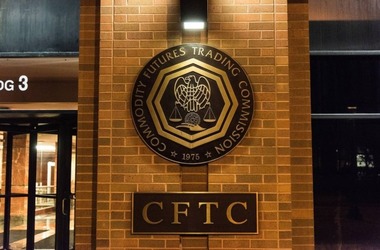 Wikileaks shop, the commercial arm of whistle-blowing site Wikileaks, announced on Twitter that their cryptocurrency account with Coinbase has been blocked. The San Francisco-based wallet provider and exchange has cited violation of its Terms of Service for closing the account. Wikileaks is solely run by its founder Julian Assange, who was earlier granted political asylum and then citizenship by Ecuador. Assange continues to operate from a room in the Ecuadorian embassy in London.
Wikileaks shop, the commercial arm of whistle-blowing site Wikileaks, announced on Twitter that their cryptocurrency account with Coinbase has been blocked. The San Francisco-based wallet provider and exchange has cited violation of its Terms of Service for closing the account. Wikileaks is solely run by its founder Julian Assange, who was earlier granted political asylum and then citizenship by Ecuador. Assange continues to operate from a room in the Ecuadorian embassy in London.
The Coinbase store run by Assange sold Wikileaks branded merchandize including shirts, posters, mugs, among other items. Separately, Wikileaks also ran a generic goods shop online. Customers can pay in Bitcoin, Bitcoin Cash, Dash, Litecoin, Dash, Dogecoin, Neo, Ethereum, Vertcoin, Nameoin, Monero, and ZCash.
Prior to this announcement all payments were process by Coinpayments.net. Proceeds from the sale of products is used entirely for Wikileaks operations.
According to a tweet posted by the Wikileaks Shop, Coinbase has resorted to closing its account as part of its ongoing effort to “implement regulatory compliance mechanisms” required by the US Treasury’s Financial Crimes Enforcement Network. A review conducted by Coinbase concluded the shop “engaged in prohibited use in violation of our Terms of Service.”
ANNOUNCE: Coinbase has blocked the official @WikiLeaks shop from its platform without notice or explanation. You can continue to donate #Bitcoin to WikiLeaks at https://t.co/lvhoyhlqUa. #Coinbase #DefendWL #Cryptocurrency #Ethereum #BitcoinCash #ReconnectJulian pic.twitter.com/4BSS023OOk
— WikiLeaks Shop (@WikiLeaksShop) April 21, 2018
Following the decision to close the account, Coinbase has informed Wikileaks to transfer the crypto balance to any other external address by following the instructions posted on the website. Notably, the US Treasury’s Financial Crimes Enforcement Network is primarily involved in preventing money laundering.
Following the announcement, Wikileaks has retaliated by calling for a “global blocade” of Coinbase which has more than 10 million customers.
WikiLeaks will call for a global blockade of Coinbase next week as an unfit member of the crypto community. Coinbase, a large Californian Bitcoin processor, responding to a concealed influence, has blocked the entirely harmless @WikiLeaksShop in a decision approved by management. https://t.co/PAldF8b12P
— WikiLeaks (@wikileaks) April 21, 2018
Notably, Wikileaks fought a similar battle with payment processors such as Visa, Mastercard, Paypal, Western Union, and the Bank of America when they refused to process donations to the site after it exposed US diplomatic cables in November 2010. Wikileaks started using cryptocurrencies to circumvent the ban. Assange also won a court ruling, which forced the financial institutions to revoke their ban. Bitcoin advocate Andreas M. Antonopoulos has pointed in a tweet that history has repeated itself.
We have come full circle. Many people’s interest in bitcoin started when Wikileaks was out under an extra judicial embargo by VISA, MC, PayPal and banks. Now Coinbase has repeated history. Oops. https://t.co/b8HQkoOwyQ
— Andreas M. Antonopoulos (@aantonop) April 21, 2018
Wikileaks, however, can receive donations directly in their wallets, unrelated to Coinbase. Last fall, Assange publicly thanked the US government for forcing Wikileaks to accept donations in Bitcoin, which shot up to about $20,000. Assange also revealed that Wikileaks had realized a 50,000% return on donations.
Antonopoulos has also pointed out that the ban is purely symbolic and would have practically no effect on Wikileaks. However, he pointed out that the “symbolism is a pretty poignant reminder of what centralization and banking regulations mean.”

 United States
United States United Kingdom
United Kingdom















